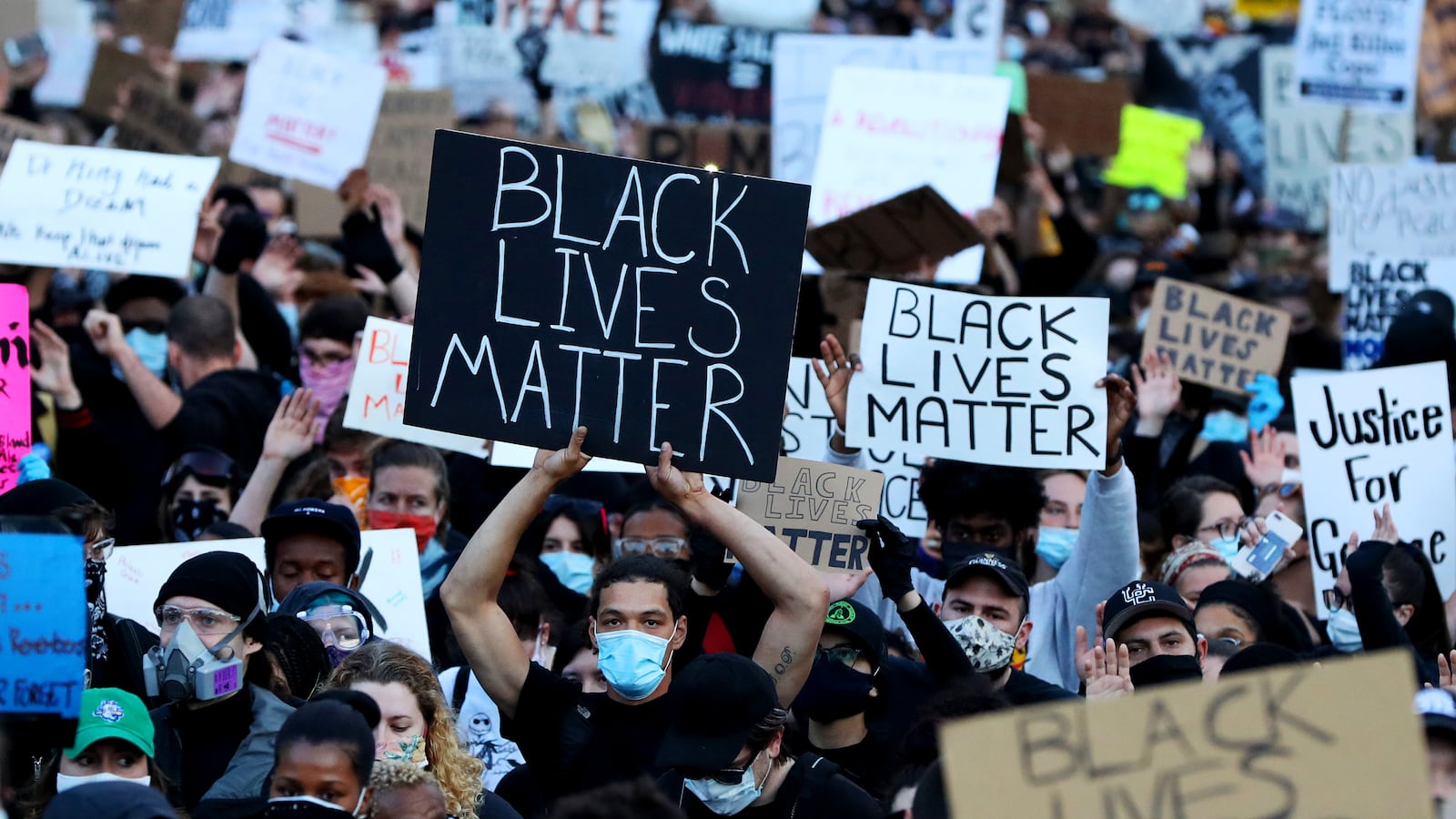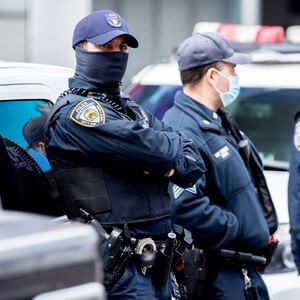You probably didn’t hear that California Gov. Gavin Newsom signed a package of eight policing reform bills last month, including accountability and transparency measures long sought by local justice reform activists. Or that Illinois ended cash bail in February as part of a set of reforms that also restructured the state’s pretrial detention system. Or that Oklahoma—a red state—is in the midst of an unexpectedly bipartisan conversation about reducing the number of people lost in its overflowing network of jails.
If you did hear about any of those stories, it almost certainly wasn’t from Democratic politicians. Even as state and local reformers continue to post major victories on cash bail and ending the school-to-prison pipeline, national Democrats have almost entirely abandoned discussing criminal justice reform in public.
It wasn’t long ago that Democrats—led by then-candidate Joe Biden—fearlessly championed sweeping criminal justice and policing reforms as part of their successful 2020 campaign messaging. Rewarded with power, Democrats quickly lost their appetite for pushing what Republicans framed as radical legislation designed to “defund the police”—despite nine of ten Americans actually supporting broad criminal justice reforms.
Bipartisan discussions around criminal justice reform, which were already dying of neglect after months of inaction, finally collapsed last week after Republicans refused to support Democrat-proposed measures to increase police accountability. Equally to blame is the amateurish way Democrats have allowed the GOP to drive messaging around criminal justice reform in what amounts to Democratic lawmakers scaring themselves with their own shadows.
For over a year, Republicans painted a frenzied narrative of record crime rates, anarchy in the streets, and naive liberals disarming and disrespecting law enforcement—even as local Democrats funneled an additional $200 million to the NYPD and blue cities across America boosted police budgets to record levels.
Despite knowing voters were on their side, Democrats took the GOP’s bait. Leadership, including Biden, began to visibly back away from the criminal justice reformers who make up a big chunk of the party’s activist base. That was cowardly at the time. Now that the GOP’s arguments have been shown to be nonsense, continued Democratic silence is indefensible.

"Demonstrators call for the closing of the Rikers Island prions as they protest outside the City Hall in New York, on September 22,2021. - New York's notorious Rikers Island prison is now under intense scrutiny over the deaths of at least nine inmates this year. Officials who visited the high-profile jail, and former inmates spoken to by AFP, say conditions have worsened dramatically at the sprawling complex due to widespread staff shortages during the pandemic. (Photo by KENA BETANCUR / AFP) (Photo by KENA BETANCUR/AFP via Getty Images)"
KENA BETANCURLast year the Brennan Center published “A Federal Agenda for Criminal Justice Reform,” an actionable blueprint for Democrats’ professed desire to reform everything from policing to prisons. Unfortunately for the reformers, the Biden administration has ducked polarizing issues like clemency reform and fixing our police. That leaves small, often poorly resourced state and local efforts in the bizarre and embarrassing position of advocating more loudly for the Democratic agenda than the Democratic Party does.
“Leadership at the federal level does, we believe, inspire change at the state and local level,” Brennan Center for Justice Senior Counsel Ames Grawert tells The Daily Beast. “But states are making their own progress this year, with New York recently enacting the Less Is More Act, a major parole reform bill, and a statewide ‘clean slate’ law.”
With bipartisan talks tanked and any hope for passage of the ambitious George Floyd Justice in Policing Act gone, state and local activists are facing a political landscape where a new party holds power but little has actually changed.
That’s infuriating to Scott Hechinger, a civil rights attorney from Los Angeles who founded Zealous, a national organization to train public defenders. Hechinger, whose influential Twitter account often reads like a laundry list of the latest criminal justice outrages, doesn’t mince words about how abandoned many reformers feel.
“The response from our local and national Democratic leaders has been deeply disappointing and more than that, dangerous,” Hechinger told The Daily Beast. “Instead of using their platforms to… educate their constituents about the truth of our need to end a half century of profoundly racist, costly, failed strategies, they’ve demeaned the movement for justice they claimed to support.”
Hechinger cites Democrats’ public distancing from the criminal justice reform movement as especially demoralizing. Chicago Mayor Lori Lightfoot, no stranger to presiding over police violence, once mocked local families and activists who demanded police reform. In March, Democratic Reps. Ron Kind and Jared Golden theatrically voted to oppose the George Floyd Justice in Policing Act.

"Police officers wearing protective masks stand in front of a criminal justice reform sign during the Republican National Convention in Washington, D.C., U.S., on Thursday, Aug. 27, 2020. President Trump will ask Americans to return him to office in a speech closing the convention, arguing that voters can't trust Joe Biden or the Democratic Party to navigate the coronavirus pandemic or salve the nation's racial divisions. Photographer: Stefani Reynolds/Bloomberg via Getty Images"
BloombergThose most likely to suffer for Congress’ inaction are the very communities already facing the brunt of staggering police violence and a patchwork of state legal systems that only overlap in their shared priority of jailing Black and brown Americans at five times the rate of whites—even if that means making up imaginary crimes to justify fraudulent arrests, as officials did in Rutherford County, Tennessee. Bad actors across our justice system rush to take advantage of Washington’s gridlock with predictably nightmarish consequences for those least likely to be seen or heard by their elected officials.
Without Democrats to lead on criminal justice and policing issues, the national conversation has fallen eerily silent. Public engagement around criminal justice reform peaked in January of this year, according to data from Google Trends, but has since fallen by roughly three quarters. Once a major unifying issue, Democrats are now barely whispering about fixing our justice system.
As the nation heads into what is shaping up to be one of the nastiest midterm election fights in memory, the window for serious criminal justice reform is closing. There are still opportunities for bipartisan action, if only Democrats would dare to restart the conversation: the EQUAL Act, which would eliminate the disparity between crack and powder cocaine, is one area of broad agreement. The First Step Implementation Act, which would make portions of the 2018 sentencing reform law retroactive, is another.
If Democrats want those wins, they need to recommit to one of their most fundamental campaign promises: that we must rebuild the fatally flawed, violent, costly mess that currently stands in place of a true justice system.







